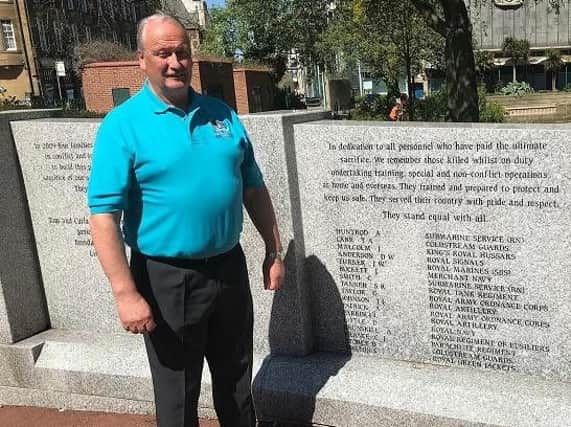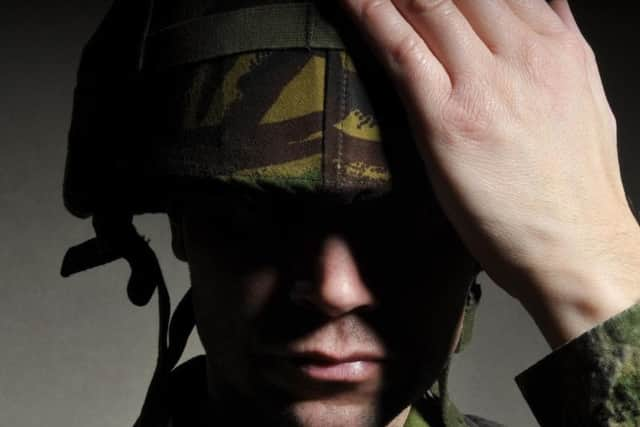'Veterans not immune from stresses of life that other people suffer'


Graham Hall is the chairman of the Sunderland Armed Forces Network, which has helped more than 700 ex-personnel with issues ranging from homelessness to their mental health since it was founded in 2011.
While accepting that more must be done to prevent suicides among soldiers, Mr Hall, who served in Northern Ireland at the height of the province’s Troubles in the 1970s and 1980s, said: “It is important to remember that people either in the forces or who have left the forces may commit suicide not because of what they have seen in the Army but because of something else that may have happened in their lives.


Advertisement
Hide AdAdvertisement
Hide Ad“It might be something relating to their life before the forces or something that has happened after in their personal lives.
“That is not to say that veterans are not suffering because of what they have experienced while serving.
“But they are not immune to the stresses of life that other people suffer.”
Advertisement
Hide AdAdvertisement
Hide AdMr Hall has backed calls from a host of politicians, clinical experts and retired military figures for new regulations to assess the extent of the problem and added: “This country sometimes forgets the debt we owe the armed forces and needs to do more for veterans once they leave their unique way of life.
“Just look at what’s happened in recent weeks with all the grass fires on the moors. Who came out to help when the emergency services were struggling? The Army.”
Mr Hall, 64, who was a sergeant in the Royal Anglian Regiment, works with the National Health Service and police in Sunderland to spread a “better understanding of the unique circumstances veterans find themselves in”.
Also read: Sunderland veteran who hit "rock bottom" urges others to seek help for their mental health
Advertisement
Hide AdAdvertisement
Hide AdHe said: “We are working with the Clinical Commissioning Group so that all 52 surgeries in the city have a dedicated forces champion.
“We have been called out as well to mediate when the police have detained a veteran so that we can try to resolve issues before they get out of hand as it can be hard for a veteran to explain to someone who does not have a military background what is wrong.”
Pub owner Mr Hall estimates that Sunderland has about 26,500 veterans among its population of nearly 280,000 and says that 2016 government figures suggest it has “the highest proportion of veterans per city in the United Kingdom”.
While he accepts that the number of former servicemen and women with Post Traumatic Stress Disorder (PTSD) is rising, he puts that partly down to “greater understanding” of mental health issues.
Advertisement
Hide AdAdvertisement
Hide AdHe adds: “The amount of time it takes for soldiers to discuss PTSD is down from 14 years to 11 years.
“I think this is because PTSD is more recognised than it has been and not just within the armed forces.
“There is greater understanding, we identify it better, and that is a good thing.
“Unfortunately we cannot completely solve the problem, and it is difficult to know how deep it is.
Advertisement
Hide AdAdvertisement
Hide Ad“The biggest problem is not the people who have recognised they have PTSD. It is the ones who have not recognised, and I would urge anyone who is keeping quiet to seek professional help.”
The Sunderland Armed Forces Network, which also deals with benefits and pensions issues, can be contacted on (07711) 184444 or by email at [email protected].
Also read: How Sunderland veterans can get help